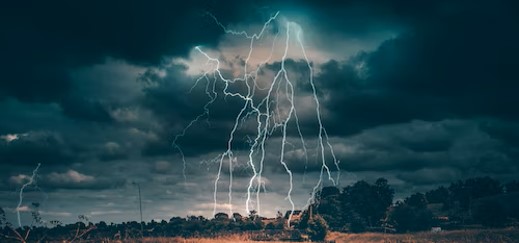So you think fire raining down from the heavens is what success looks like?

At the hour of the afternoon sacrifice the prophet Elijah approached the altar and prayed, “O Lord… prove now that you are the God of Israel and that I am your servant and have done all this at your command. Answer me, Lord, answer me, so that this people will know that you, the Lord, are God and that you are bringing them back to yourself.”
(1 Kings 18:36-37)
Here – around 400 years after Moses – the prophet Elijah has prepared a sacrifice, surrounded by a people who hesitate between following God and following pagan gods. Whatever follows and however God chooses to answer, Elijah is expecting two outcomes:
- …that this people will know that you, the Lord, are God
- …that this people will know that you are bringing them back to yourself
Here’s what follows:
“The Lord sent fire down, and it burned up the sacrifice, the wood, and the stones, scorched the earth and dried up the water in the trench. When the people saw this, they threw themselves on the ground and exclaimed, “The Lord is God; the Lord alone is God!”
(1 Kings 18:38 – 39)
“If only God would do this in every generation!”, we shout. A miracle putting beyond all doubt that the Lord truly is God! And the people here acknowledged what was now obvious (was that outcome ever in doubt?). A complete success! But wait, that’s only half of it. What about the second outcome? Would the people repent and turn back to God?
King Ahab told his wife Jezebel everything that Elijah had done and how he had put all the prophets of Baal to death. She sent a message to Elijah: “May the gods strike me dead if by this time tomorrow I don’t do the same thing to you that you did to the prophets.”
(1 Kings 19:1-2)
“Ouch, that response was unexpected!”, we murmur. Moreover, Jezebel was not alone in her response. There is no indication that the people ever came back to God. No one changed their behavior. No one repented. In fact, it would be only a few short generations later that Israel (minus the tribe of Juda) was wiped off the face of the map. So where does that leave us when even a powerful miracle such as fire reigning down from the heavens is insufficient to bring people to God?
Jesus would one day tell a story about a rich man who mistreated his servant Lazarus in life and later died and found himself in Hades in great pain where…
“…he looked up and saw Abraham, far away, with Lazarus, at his side. So he called out, ‘Father Abraham… send Lazarus to my father’s house, where I have five brothers. Let him go and warn them so that they, at least, will not come to this place of pain.’ Abraham said, ‘Your brothers have Moses and the prophets to warn them…’ The rich man answered, ‘That is not enough, father Abraham! But if someone were to rise from death and go to them, then they would turn from their sins.’ But Abraham said, ‘If they will not listen to Moses and the prophets, they will not be convinced even if someone were to rise from death.’”
(Luke 16:22-31)
Signs and wonders will not bring about repentance and submission to God. What then? A number of years hence and long after Elijah had passed from the scene, another would later prophesize that…
“…before the great and terrible day of the Lord comes, I will send you the prophet Elijah.”
(Malachi 4:5)